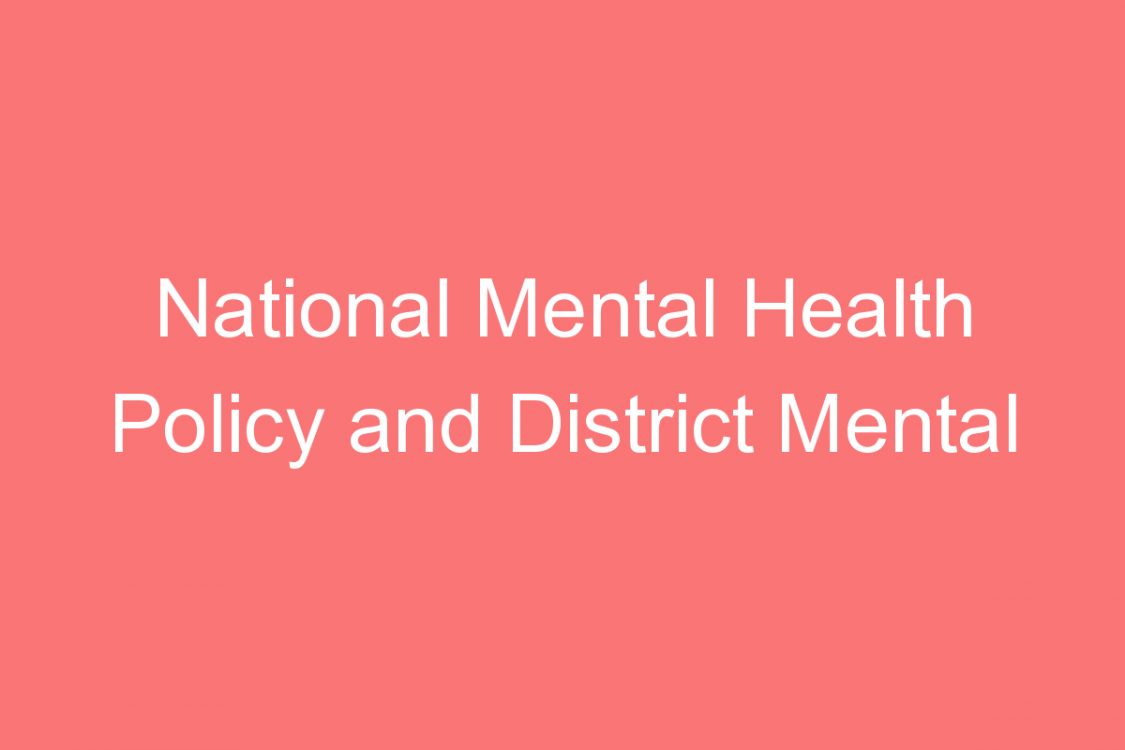NMHP focused to enhance availability and equitable distribution of skilled human resources for mental health. The JHAs, SHAs, ANMs, ASHA’s, ST promoters were trained to identify and refer cases for evaluation and treatment and training was given to Primary Health Center doctors to provide appropriate care and tried to progressively enhance financial allocation and improve utilization for mental health promotion and care. NMHP divided health services to four categories such as Primary Health care services, Village level services, Sub center level and Primary Health Centre level.
NMHP envisioned District Mental Health Programs all around the country to treat people with mental illness by sending doctors to the community rather than that clients coming to see the doctors which resulted in larger service utilization by great number of patients. Other thrust areas were strengthening the Medical Colleges with allocation of Rs.50.00 lakhs each to 100-Medical Colleges, and Central and State Mental Health Authorities.
Streamlining and modernization of Mental Hospitals to tertiary care centers of excellence were another significant eature of NMHP and 16 centers were selected as centers of excellence including Institute of Mental Health And Neuro Sciences in Calicut, Kerala and promotion of interdisciplinary research.
District Mental Health Program
The following are the objectives of the District Mental Health Program,
1. To provide sustainable basic mental health services to the community and to integrate these services with other health services
2. Early detection and treatment of patients within the community itself
3. To see those patients and their relatives do not have to travel long distances to go to hospitals or nursing homes in the cities;
4. To take pressure off the mental hospitals;
5. To reduce the stigma attached towards mental illness through change of attitude and public education;
6. To treat and rehabilitate mental patients discharged from the mental hospitals within the community
There are a number of reasons for the poor implementation of DMHP. Mainly there where administrative delays such as allocation of funding, difficulty in recruiting qualified mental health professionals and lack of good quality training for the professionals. Some of the professionals suggested that the classes and the training part can be taken using language, more case studies, and an increase in the training frequency, low utilization of the full amount by the district and state authorities allocated to DMHP, low utilization in training and IEC components.
Other issues are the lack of organizational skills in the DMHP team, low community participation in the program and lack of coordination with the district health system, lack of dedicated drug procuring mechanism for DMHP, lack of clarity in the roles of mental health professionals. Some other reasons are unfilled vacancies because of poor salary, lack of job description and poor job satisfaction. DMHP could not address that basic issue of stigma that surrounds mental illness. There is stigma in the community where people think that only “mad people” saw counselors or psychologist.

